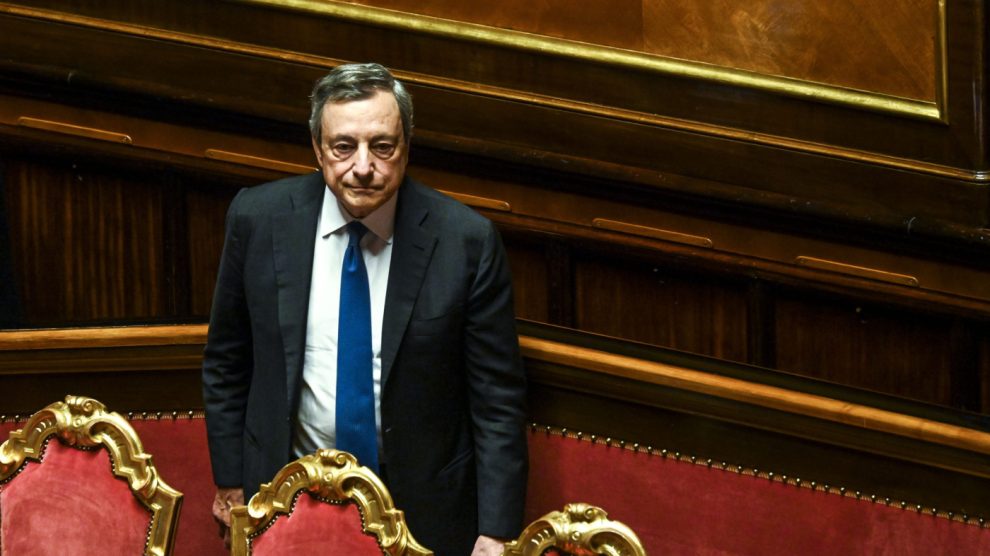Draghi’s out. The Italian Prime Minister is expected to resign after a day of political turmoil and weeks into a brewing government crisis. He will likely carry on as caretaker PM until the next elections; the earliest possible date is in early October.
- Last week, when a coalition party withheld its confidence in a key vote, Mr Draghi had handed his resignation to President Sergio Mattarella, who promptly sent him back to see if he could stay at the helm. Which he offered to do, but only with his existing coalition.
It was a political calculus. When he addressed Parliament on Wednesday morning, the former ECB head called on the parties to renew the trust that had supported his government. But two parties chose to take advantage of the window of opportunity.
- The Five Star Movement, the party that had triggered the crisis, looked set to succumb to internal and external pressure and re-enter the majority by voting confidence in Mr Draghi.
- However, the League and Forza Italia signalled they wanted to go on without the 5SM. In doing so, they effectively rejected PM Draghi’s conditions to preserve the “national unity” government that he saw as the underlying condition for his permanence.
- The PM was appointed in February 2021, while Italy was in the throes of the pandemic and an economic and social crisis. He recalled as much in his speech, highlighting his belief that his “technical” mandate was inextricably tied to, and justified by, the wide support he enjoyed.
Look right. The League (led by Matteo Salvini) and Forza Italia (headed by Silvio Berlusconi) probably intend to benefit from early elections to maximise their electoral gains. They are allied with the only major opposition party, Giorgia Meloni’s Brothers of Italy, who currently stands to win the most.
- The latter party currently tops the polls with over 20% of prospective electors. That’s well over five times the share of voters it attracted at the last elections.
- The entire centre-right coalition is projected to win around 40% of the votes in a snap election.
Now what? In line with all the other European countries, among galloping inflation, the energy and cost-of-living crisis and economic warfare with Russia, Italy’s economic outlook was already worrying. Now it’s looking even worse; as the day’s outcome was becoming clearer, the BTP-BUND spread (widely used as an economic indicator) peaked at a dire 236 points.
Italy’s international positioning is also likely to change. Under Mr Draghi’s leadership, the country had carved out a bigger, more influential role on the world stage. His steadfast attachment to the Euro-Atlantic framework was pivotal in shaping the Western response to the Russian aggression on Ukraine and fostering cooperation.
- Vladimir Putin’s Russia is set to gain from Mario Draghi leaving the helm and from the weakened Western front. And we would be amiss not to mention, on an unrelated note, that the Italian parties closest to Russia contributed to his fall.





